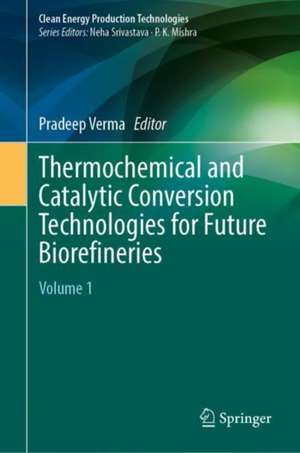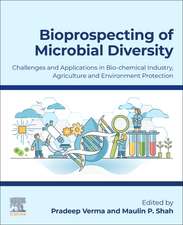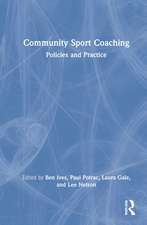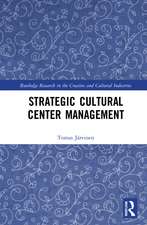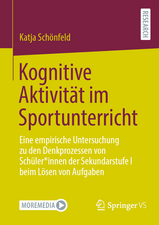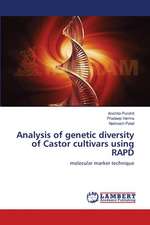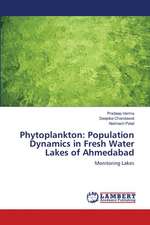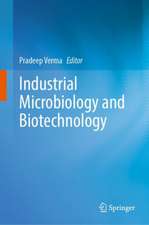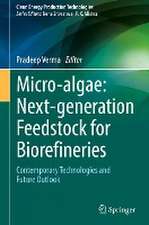Thermochemical and Catalytic Conversion Technologies for Future Biorefineries: Volume 1: Clean Energy Production Technologies
Editat de Pradeep Vermaen Limba Engleză Hardback – 2 sep 2022
| Toate formatele și edițiile | Preț | Express |
|---|---|---|
| Paperback (2) | 783.99 lei 39-44 zile | |
| Springer Nature Singapore – 11 oct 2023 | 783.99 lei 39-44 zile | |
| Springer Nature Singapore – 3 sep 2023 | 791.13 lei 39-44 zile | |
| Hardback (2) | 950.52 lei 3-5 săpt. | |
| Springer Nature Singapore – 11 oct 2022 | 950.52 lei 3-5 săpt. | |
| Springer Nature Singapore – 2 sep 2022 | 956.81 lei 3-5 săpt. |
Din seria Clean Energy Production Technologies
- 18%
 Preț: 1380.47 lei
Preț: 1380.47 lei - 18%
 Preț: 1223.55 lei
Preț: 1223.55 lei - 18%
 Preț: 950.52 lei
Preț: 950.52 lei - 18%
 Preț: 1388.53 lei
Preț: 1388.53 lei - 18%
 Preț: 777.50 lei
Preț: 777.50 lei - 24%
 Preț: 1205.06 lei
Preț: 1205.06 lei - 18%
 Preț: 1377.64 lei
Preț: 1377.64 lei - 24%
 Preț: 932.38 lei
Preț: 932.38 lei - 18%
 Preț: 1118.62 lei
Preț: 1118.62 lei - 18%
 Preț: 1219.01 lei
Preț: 1219.01 lei - 18%
 Preț: 1219.46 lei
Preț: 1219.46 lei - 18%
 Preț: 1219.63 lei
Preț: 1219.63 lei - 24%
 Preț: 785.77 lei
Preț: 785.77 lei - 18%
 Preț: 1224.99 lei
Preț: 1224.99 lei - 18%
 Preț: 1552.36 lei
Preț: 1552.36 lei - 18%
 Preț: 1549.04 lei
Preț: 1549.04 lei - 18%
 Preț: 1216.65 lei
Preț: 1216.65 lei - 18%
 Preț: 947.35 lei
Preț: 947.35 lei - 18%
 Preț: 1222.01 lei
Preț: 1222.01 lei - 18%
 Preț: 1386.62 lei
Preț: 1386.62 lei - 18%
 Preț: 1216.95 lei
Preț: 1216.95 lei - 18%
 Preț: 1217.10 lei
Preț: 1217.10 lei - 18%
 Preț: 966.90 lei
Preț: 966.90 lei - 18%
 Preț: 1227.04 lei
Preț: 1227.04 lei - 24%
 Preț: 1146.24 lei
Preț: 1146.24 lei - 18%
 Preț: 1221.83 lei
Preț: 1221.83 lei
Preț: 956.81 lei
Preț vechi: 1166.84 lei
-18% Nou
Puncte Express: 1435
Preț estimativ în valută:
183.13€ • 190.47$ • 153.47£
183.13€ • 190.47$ • 153.47£
Carte disponibilă
Livrare economică 20 februarie-06 martie
Preluare comenzi: 021 569.72.76
Specificații
ISBN-13: 9789811943119
ISBN-10: 9811943117
Pagini: 374
Ilustrații: XVI, 374 p. 48 illus. in color.
Dimensiuni: 155 x 235 mm
Greutate: 0.77 kg
Ediția:1st ed. 2022
Editura: Springer Nature Singapore
Colecția Springer
Seria Clean Energy Production Technologies
Locul publicării:Singapore, Singapore
ISBN-10: 9811943117
Pagini: 374
Ilustrații: XVI, 374 p. 48 illus. in color.
Dimensiuni: 155 x 235 mm
Greutate: 0.77 kg
Ediția:1st ed. 2022
Editura: Springer Nature Singapore
Colecția Springer
Seria Clean Energy Production Technologies
Locul publicării:Singapore, Singapore
Cuprins
Chapter 1. Scope and characteristics of the biomass sources suitable for biorefinery applications.- Chapter 2. Recalcitrance of lignocellulosic biomass and pretreatment technologies: A comprehensive insight.- Chapter 3. Understanding Biomass Recalcitrance: Conventional physical, chemical and biological pretreatment methods for overcoming biomass recalcitrance.- Chapter 4. The pioneering role of enzymes in the valorization of waste: An insight into the mechanism of action.- Chapter 5. Thermochemical conversion of biomass into value-added materials for effluent treatment applications.- Chapter 6. Cellulase – A catalytic powerhouse for lignocellulosic waste valorisation.- Chapter 7. Technical criteria for converting biomass to high liquid bio-oil yields.- Chapter 8. Biomass pyrolysis and its multiple applications.- Chapter 9. Recent advances in direct catalytic thermochemical gasification of biomass to biofuels.- Chapter 10. Recent advances in fast pyrolysis and oil up-gradation.- Chapter11. An overview on Organosolv production of bio-refinery process streams for the production of bio-based chemicals.
Notă biografică
Dr. Pradeep Verma is a Professor at the Department of Microbiology, School of Life Sciences, CURAJ, Ajmer, India. He worked as an Associate professor and Reader-Founder Head at GGV, Bilaspur and Assam University, Silchar. He received his PhD from Sardar Patel University, Gujarat and his Master's and Bachelor’s from MDS University, Rajasthan. He worked as visiting scientist at UFZ Centre for Environmental Research, Halle, Germany and a Post-doctoral fellow at ASCR Prague, Gottingen University Germany, and RISH Kyoto University Japan. He also worked at Reliance Life Sciences, Mumbai, India. His stay at Japan and Reliance life Sciences resulted in several commercialized National and International patents. He is a recipient of various prestigious awards and fellowships such as the Ron-Cockcroft award by Swedish society, UNESCO Fellow, DFG fellow, and JSPS PDF. He is a fellow of the Mycological Society of India and the Biotech Research Society of India. His area of expertise involves microbial diversity, Bioremediation, bioprocess development, lignocellulosic, and algal biomass-based biorefinery. He has contributed to 71+ research papers, 40+ book chapters, and 11 Edited books. He is an editorial board member and reviewer of several prestigious high-impact journals.
Textul de pe ultima copertă
This book will attempt to provide an account of knowledge on biomass available for biomass-based biorefineries. Its focuses on understanding the recalcitrance of biomass and how it limits the overall conversion efficiency. It also gives an insight what are different conventional approaches available for pretreatment and hydrolysis of the biomass. The chapters deals with highlights how enzymes can be a powerhouse and play pioneering roles in biomass valorization. The book will also throw light on how technical aspects of thermochemical conversion strategies such as pyrolysis, gasification, organosolv methods for the generation of value-added materials such as high-quality bio-oil, biochars, and biobased chemicals. These high-value compounds can be put to widespread application in biofuel, biocatalyst, waste bioremediation (heavy metal removal), air purification and effluent treatment applications. The book will provide literature on the limitations of already existing technologiesand provide prospects of each technology. This book is of interest to teachers, researchers, bioenergy scientists, capacity builders, and policymakers. Also, the book serves as additional reading material for undergraduate and graduate students of energy studies, chemical engineering, biotechnology, and environmental sciences. National and international energy scientists and policymakers will also find this to be a useful read.
Caracteristici
Covers major existing thermochemical and catalytic technologies available for the valorization of biomass Provide illustration for the better understanding of different processes and technologies Includes sections on advantages as well as limitations of different technologies
